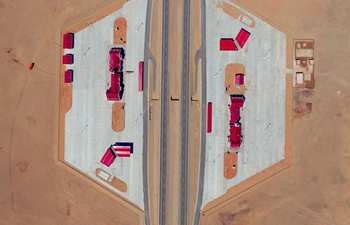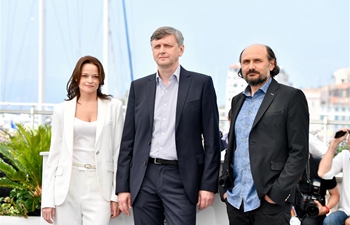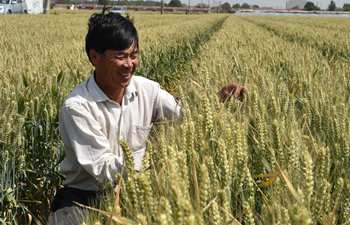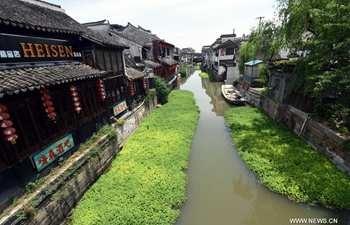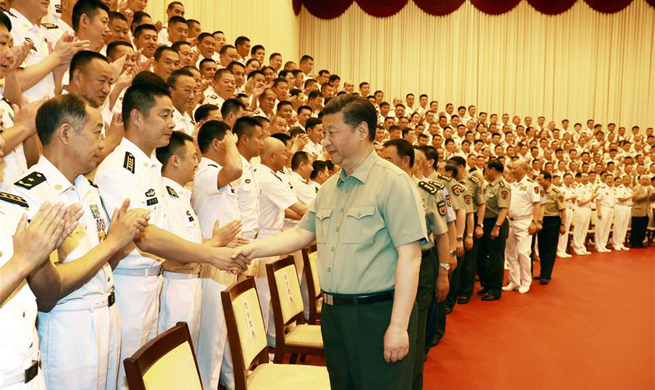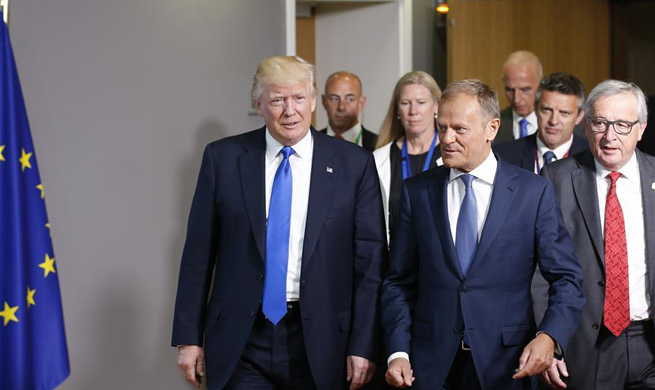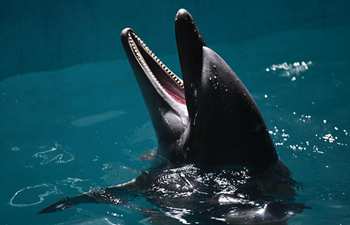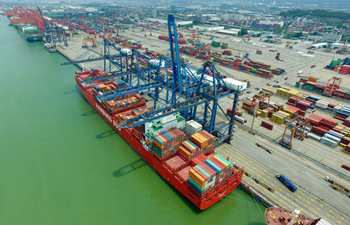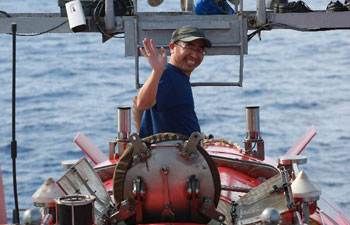ISTANBUL, May 25 (Xinhua) -- The emphasis on democracy and economic progress at a recent congress of Turkey's ruling party has failed to instil hope as many remain sceptical about the country's future amid a weakening rule of law under an emergency rule.
"Turkey's current picture is not promising as far as democracy, economy is concerned," Aziz Konukman, a professor of economics with Gazi University, told Xinhua.
Turkey has been put under a state of emergency since the government foiled a failed military coup last July.
The Justice and Development Party (AKP) government has been much criticized since then for ruling the country by statutory decrees in a way that does away with democracy.
Given the government's pressure on dissident media, it is difficult to be optimistic and expect more democracy, said Konukman.
Many employees of Turkey's two leading dissident dailies, Cumhuriyet and Sozcu, are currently under arrest for allegedly serving a terrorist organization led by Fethullah Gulen, a Turkish cleric now living in the United States.
Democracy, change and reform were the leading theme of the AKP snap congress last weekend, in which President Recep Tayyip Erdogan was reelected as the party's chairman, a move made possible by a controversial referendum held last month for a switch to a more powerful presidency.
The AKP is the guarantee for democracy and change as well as being the party of reforms, Erdogan said at the event.
In addition, he vowed to further improve democratic standards while increasing economic investments as the Turkish economy struggles under high unemployment and inflation.
It is widely argued, however, that the AKP's hope to recover the sluggish economy may be hampered by weakening democracy.
Noting Turkey is given by leading credit rating agencies a non-investment grade, Konukman remarked, "The main problem is the lack of legal security."
"Legal security is the principle criteria for attracting foreign direct investments," he added.
Due to a very low rate of savings at home, Turkey is highly dependent on foreign money for economic growth.
The AKP made significant progress in both democratization and economic growth in its first term in power, but has faced harsh criticism at home and abroad in the last couple of years for growing authoritarianism and violating the rule of law.
The Islamist AKP, which Erdogan had headed until he was elected president in 2014, has been in power as a single party since 2002.
Turkey may, however, continue to attract hot money to keep the economy going by offering high interest rates.
Abdullatif Sener, a former leading AKP figure, is not all that pessimistic about Turkey's potential to draw investments although he feels Turkey can no longer be described as a democracy.
"A suitable atmosphere for investors may still be created. All depends on what steps the government will take," he told Xinhua, saying investors look for an environment of trust as well as high profit rates.
Turkey needs to get this year around 200 billion U.S. dollars in loan for the economy to properly function.
According to media reports, Erdogan plans to mend ties with Kurds, liberals and those Islamists who moved away from the AKP out of frustration over the past couple of years.
The AKP, a supporter of the switch to the presidential system, won only a very narrow victory in the referendum.
Erdogan is well aware that ahead of the next presidential election in 2019, the AKP needs to win over voters who used to support the party.
Liberals as well as the majority of the Kurds were at AKP's back only a couple of years before. As to the Kurds, they have been victimized by the government's ongoing battle against the outlawed Kurdistan Workers' Party, as many have been forced to leave their homes in towns in Turkey's southeast.
It is circulated in local media that the AKP may consider snap elections in late fall or next spring.
The AKP's roadmap for success in the next election is based on three elements, Serpil Cevikcan, a Milliyet daily columnist, wrote in her column on Wednesday.
According to Cevikcan, the ruling party is aiming for the introduction of an economic model promoting production, democratization as well as sorting out problems in foreign policy, as Turkey's ties with many countries in the region, the European Union and the United States have been all strained in recent years.
In contrast with many others, Sener feels that the AKP may lift the emergency rule sooner than expected, despite Erdogan's remarks implying otherwise.
Sener served until 2007 as a deputy prime minister in the AKP governments before cutting off his ties with the party in 2008.
Erdogan's discourse about democracy has not been found convincing by many.
"The political system in Turkey can no longer be described as democratic given that the separation of powers is not in place any longer," said Sener.
The constitutional amendments accepted in April's allegedly dubious referendum are much criticized for greatly weakening the parliament, eliminating checks and balances and leading to a one-man rule.
"The president has now control over the executive, the legislative and the judiciary," added Sener.
"The principle of legal security has never been so much damaged before," Ibrahim Kaboglu, a professor of constitutional law, told Xinhua.
The extension of the emergency rule implies that the government is not so much interested in legal security, argued the scholar, who is among those dismissed from universities under statutory decrees following the coup bid.
Tens of thousands of public servants and hundreds of university professors, among others, have been removed from their posts without a court verdict for alleged links to the Gulen movement or other accusations.
The Gulen movement, now labeled by Ankara as Fethullahist terrorist organization (FETO), is accused by the government of orchestrating the coup, in which 249 people were killed.
Erdogan dismissed calls for the emergency rule to be lifted, saying it would not be removed until peace and welfare are achieved in the country.
Looking at the past performance of the AKP, it is pointless to expect it to change its attitude in a positive way as far as democracy is concerned, lawyer Ugur Poyraz argued on CNNTurk on Monday.
Noting that Turkish people do not feel secure when they face a trial, Poyraz maintained that the AKP only defends the rule of law when it serves its own purposes.
The AKP says it needs the emergency rule to fight more effectively against FETO, whose leader Fethullah Gulen, the government says, masterminded the failed coup.
It is widely argued, however, that the AKP also uses the emergency rule to remove dissidents from public posts and pressure media.
People would laugh at you if you accuse the Sozcu daily of cooperating with the Gulen movement, Hanefi Avci, a former police chief, said on Haberturk TV on Tuesday.
It is baseless to accuse people of aiding a terrorist organization without being a member of it, argued Avci.





